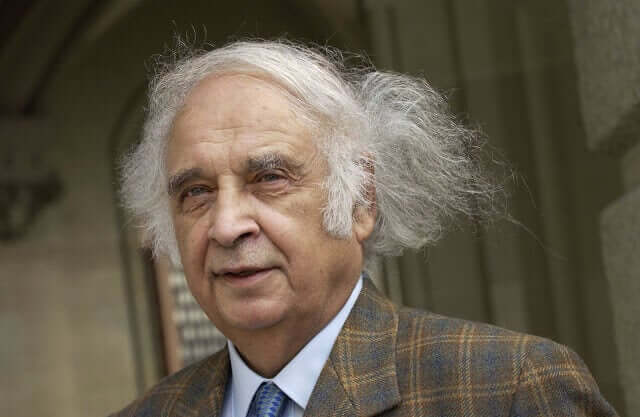Discover the biography of Serge Moscovici (1925-2014), a French social psychologist known for his contributions to the theorization of social representations.
His perspective and theoretical approach have significantly influenced almost all disciplines of the social sciences, in particular anthropology and sociology.
- Throughout his life he received numerous decorations and awards.
- And has held important academic and administrative positions.
Then we will take a look at his life and explore some of his most important contributions to the field of social psychology.
Moscovici was born in the Romanian city of Breila on June 14, 1925, and his family was Jewish, and suffered anti-Semitic discrimination from an early age.
In 1938 he was expelled from the Bucharest school by a law against the Jews, a situation that led him to join the Romanian Communist Party, considered illegal in 1939.
During World War II, Serge Moscovici was sent to a concentration camp, where he remained until his release by the Red Army in 1944.
During these years, he learned French and read numerous philosophical works by authors such as René Descartes and Baruch Spinoza.
After his release he did not stand by, in the last years of World War II he met Isidore Isou, founder of lyricism, with whom he founded Da magazine, focused on literary and artistic criticism, which unfortunately was quickly censored. .
Seeing how the Soviets took control of their country, he helped several Zionist residents cross the Romanian border, and was tried in 1947.
After winning the event, he decided to leave his home country, emigrated and arrived in France a year later, first passing through Hungary, Austria and Italy.
There, thanks to a foundation for refugees, he managed to study psychology at La Sorbonne. He also studied epistemology and science history.
His thesis on psychology focused on the image that some members of French society had of psychoanalysis in the 1950s, his advisor being the psychoanalyst Daniel Lagache, disciple of the historian and philosopher of science Alexandre Koyré.
Thanks to the results of his thesis in psychology, he published his first book, Psychanalysis, his image and his audience, a text in which he first presented his theory of social representations.
This new theory reached maturity in the 80s and 90s, with special diffusion and acceptance in Europe and Latin America.
In the 1960s he was invited to the United States and taught at Princeton University’s Institute of Advanced Studies, and also worked at Stanford University and Yale University, before returning to Paris to devote himself exclusively to teaching.
In addition, he was Director of the European Laboratory of Social Psychology, of which he co-founded in 1975. He was also a member of the European Academy of Sciences and Arts, as well as a member of the Russian Academy. and an honorary member of the Hungarian Academy of Sciences.
It is necessary to clarify that Serge Moscovici was not only a great theorist, but also put his ideas into practice. Ecological activist, he ran as mayor of Paris in 1960.
Throughout his life he supported left-wing movements as well as many intellectuals of his generation.
If his most important theoretical contribution is that of social representations, it is not appropriate to simplify that of Serge Moscovici, including the theory of active minorities, which deals with the powerful influence of minorities.
Such a theory supports the proposition that the influence of the majority is overrated, because if most were so powerful in a society, we would all think the same way.
That is why Moscovici contradicts common sense and proposes that all social movements have been initiated by individuals or small groups, so invention and social change are carried out by minorities.
In addition, research on innovation, conversion and beliefs is a guide for many current researchers in psychology and social sciences.
It can therefore be said that Serge Moscovici has important contributions in various disciplines, such as anthropology, sociology, mathematics and epistemology.
Serge Moscovici was concerned with understanding the social and psychological phenomena of the contemporary Western world, for this he has had an intense life and a great academic production that continues to influence the new generations of psychologists and sociologists around the world.

